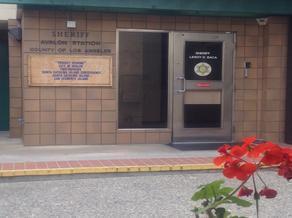A research study on the city of Avalon’s ability to handle the output of private residential desalination units was given the go-ahead at this week’s city council meeting on Tuesday, Dec. 2.
Along with the study, permission to come up with a conditional permit based on the results of the study was allowed and was given to Environ Strategies, which is the consulting firm appointed to conduct the study.
A research study on the city of Avalon’s ability to handle the output of private residential desalination units was given the go-ahead at this week’s city council meeting on Tuesday, Dec. 2.
Along with the study, permission to come up with a conditional permit based on the results of the study was allowed and was given to Environ Strategies, which is the consulting firm appointed to conduct the study.
Dennis Jaich, Avalon’s interim public works director, said during the meeting that he does not foresee the extra discharge from residential units to be a problem.
“We have to do a study to make sure the excess salinity and brine is going to be acceptable,” said Jaich. “And we anticipate it is.” Titled a “Conduct and Impact Study of Desalination Reverse osmosis systems,” the study is expected to take more than a month to complete and will tell the city what length of time the conditional permits should be allowed to stay active.
“Isn’t there a problem, actually, with the handling of waste water at our sewer treatment plant as it is?” asked Council Member Joe Sampson.
Jaich said, “It is a problem, but that’s what the study is about. We can probably handle more.”
Sampson held the most concern over the idea, or at least voiced his concerns the most, during the meeting. During peak summer times the sewer treatment plant is at 85 to 95 percent capacity, said Sampson. Though the number is not an exact figure, his concerns brought up the reason why the study was assembled in the first place, to stop the installation of desalination units that have not first been approved by the city.
“The goal is to develop a permit and then to go after those who we know have them because we don’t know what type of units they are or what their outputs are,” said Ben Harvey, Avalon’s city manager.
Until a conditional permit is developed, Avalon residents only need a discharge permit to install a desalination unit that runs into the city’s sewer system. That was what Sampson felt needed to be addressed.
“There is no way that I would say it’s a good idea to start putting in more desalination units in Avalon without understanding how we’re going to process the by-product,” said Sampson. “But if this is a study and we just need to understand what we’re dealing with, then I can go ahead and agree with that.”
The plan is to see how much excess wastewater can be processed, develop a permit that residents need to obtain to install a unit, and then charge a fee for every unit that is in place throughout the city.
“We’ve been approached by several residents and hotel owners, and as we all know during phase two of water rationing, private desalination units would help us out considerably,” said Jaich.









